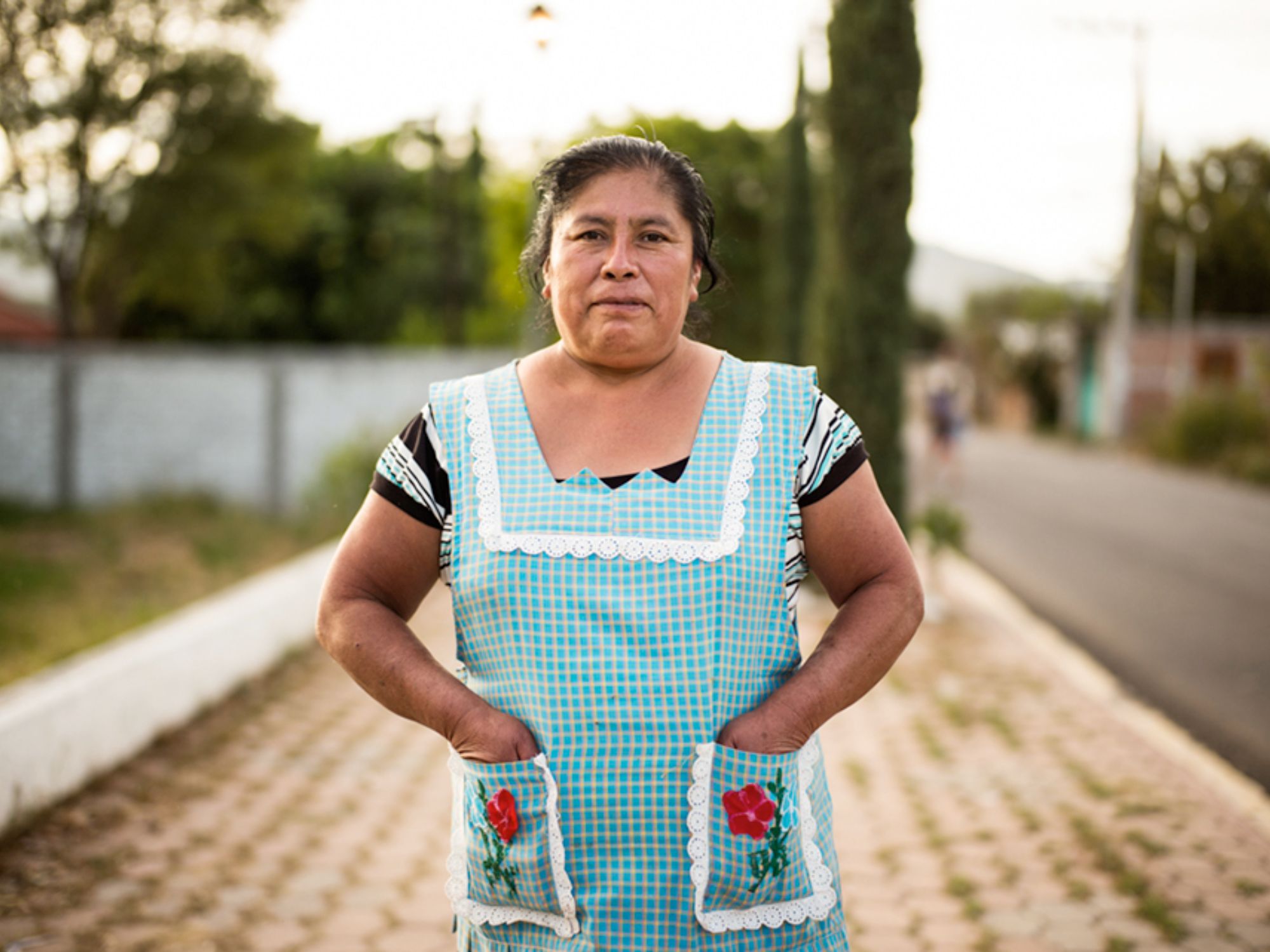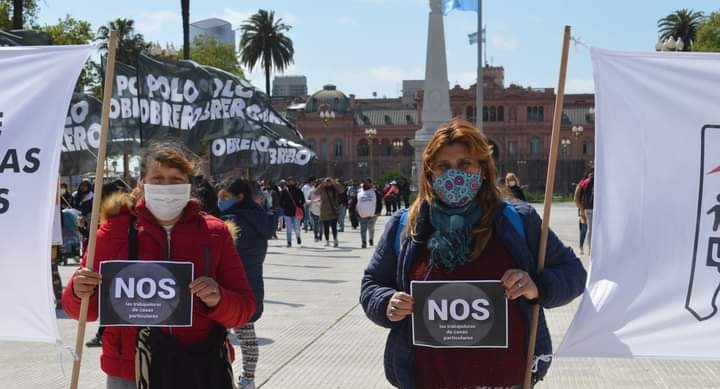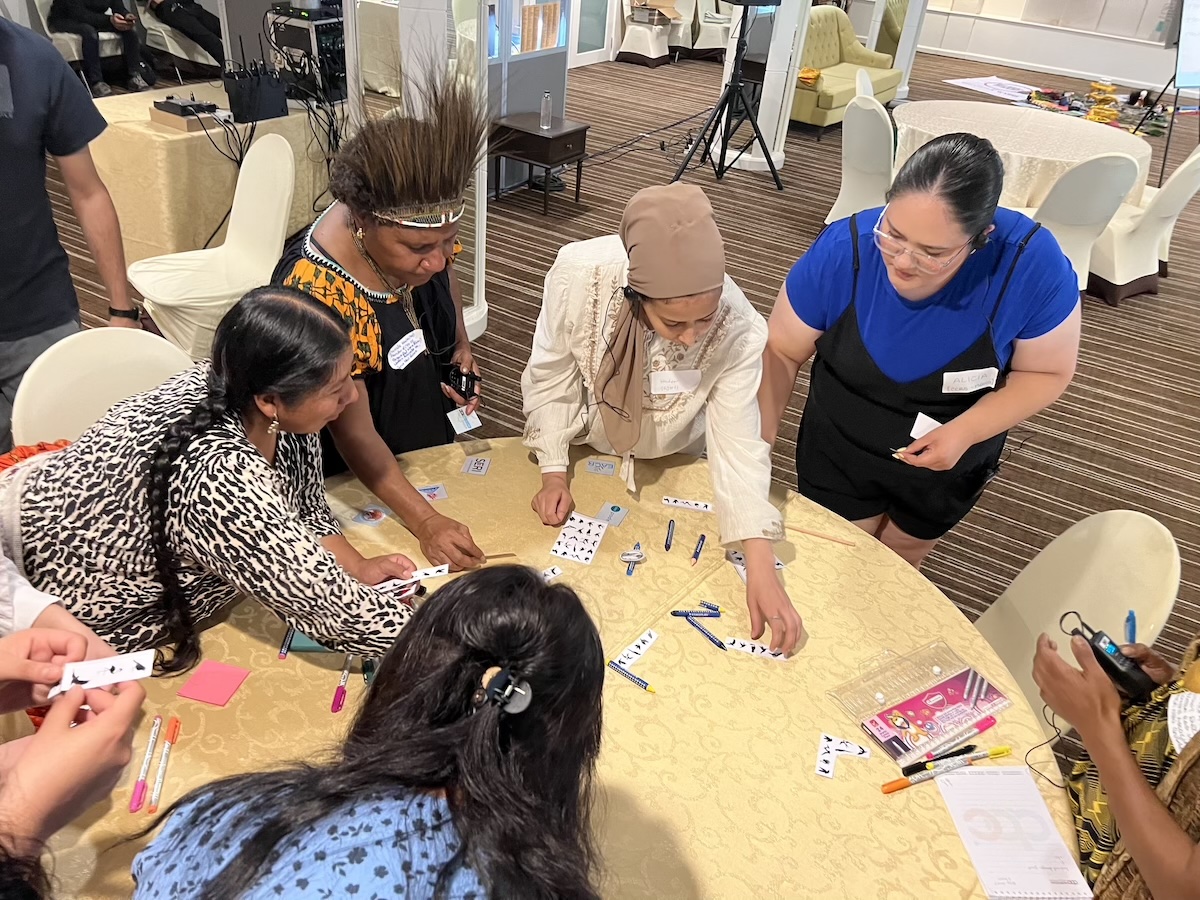C’est la première fois qu’un tribunal international reconnaît les soins comme un droit humain à part entière. La Cour a également reconnu que ce droit est interdépendant avec d’autres droits humains, notamment les droits économiques, sociaux, culturels et environnementaux. À la demande de l’Argentine, les orientations juridiques de la Cour à l’intention des États répondent à des revendications de longue date des mouvements féministes et de défense des droits humains, notamment le Réseau-DESC et 30 de ses membres, qui ont contribué aux délibérations de la Cour en partageant des arguments juridiques et leur expérience vécue.
Au total, 129 contributions écrites ont été présentées par plus de 265 acteurs, ce qui fait de ce processus le deuxième plus participatif de l’histoire de la Cour. En outre, en mars 2024, nous avons assisté aux audiences publiques qui se sont tenues à San José, au Costa Rica, en collaboration avec le Réseau-DESC, auxquelles ont participé près de 70 délégations, apportant le point de vue de la société civile organisée d’Amérique latine. Notre participation s’est concentrée sur la nécessité de construire un nouveau pacte social axé sur la préservation de la durabilité de la vie. » – Mayca Balaguer, directrice exécutive de FUNDEPS.
La Cour a souligné que les soins sont essentiels pour maintenir la vie et garantir la dignité, mais qu’ils restent profondément sous-évalués et inégalement répartis. Comme l’a signalé l’OIT, les femmes effectuent 76,2 % de l’ensemble des tâches domestiques non rémunérées dans le monde, consacrant plus de trois fois plus d’heures que les hommes à ces tâches essentielles et vitales. Ce fardeau limite non seulement l’autonomie et les opportunités des femmes, mais renforce également les inégalités structurelles à l’échelle mondiale.
Ce contexte souligne l’importance de la décision de la Cour. En affirmant juridiquement que les soins sont un droit humain, la Cour envoie un message clair : les soins ne sont pas une charge privée ou un devoir personnel, mais une responsabilité sociale collective. Les États doivent agir pour démanteler les systèmes qui dévalorisent les soins et perpétuent les injustices liées au genre. Afin de garantir le droit aux soins, les États doivent également fournir des soins de santé complets, y compris des services de santé sexuelle et reproductive, parmi d’autres formes de prestations publiques.
La Cour a également reconnu que la répartition inégale des tâches domestiques, principalement effectuées par les femmes et les filles, constituait un obstacle structurel à l’égalité réelle. Elle a reconnu que les formes croisées de discrimination fondées sur le sexe, la race, l’âge, le statut migratoire, le handicap et la situation socio-économique aggravaient les inégalités et limitaient l’accès à des droits tels que l’éducation, l’emploi et la participation politique. Elle a appelé les États à adopter des réformes structurelles afin de remédier à ces injustices.
Ce faisant, la Cour a défini les obligations concrètes des États :
- Reconnaître la valeur sociale et économique du travail de soins rémunéré et non rémunéré, réduire les charges et les obstacles liés aux soins, et redistribuer les responsabilités en matière de soins ;
- Prendre en compte le travail de soins non rémunéré, qui pèse de manière disproportionnée sur les femmes, par le biais de systèmes de soins complets, de congés parentaux, de politiques de travail flexibles et de l’accès à la sécurité sociale.
- Garantir les droits du travail et la protection sociale des travailleur.euse.s de soins rémunéré.e.s et non rémunéré.e.s ;
- Assurer un accès inclusif et équitable à des services de soins de qualité ;
- Adopter des réformes juridiques, politiques et budgétaires afin de démanteler les stéréotypes de genre et les inégalités systémiques.
Avec cette résolution, la CIDH établit un cadre juridique général destiné à guider les États dans l’élaboration de réglementations solides, conformes aux normes énoncées dans la décision elle-même. Cette avancée représente une avancée significative dans la définition de la portée et du contenu de ce droit, devenant ainsi une référence clé pour l’élaboration de lois et de politiques visant à le garantir. » – Carlos Andrés Pérez.
Cette décision renforce le Pacte social sur les soins du Réseau-DESC, une proposition collective visant à transformer la manière dont les soins sont valorisés, partagés et protégés. Le Pacte offre une vision féministe audacieuse fondée sur les 6R (pour son appellation en anglais) : reconnaissance, redistribution, réduction, droits, représentation et recadrage de l’économie en tant qu’économie des soins.
Nous ne pouvions imaginer une économie fondée uniquement sur le marché. À partir de différentes visions du monde, nous avons élaboré un pacte visant à repenser les soins à travers la reconnaissance, la redistribution, la réduction des charges liées aux soins, la représentation et la reformulation de l’économie, le tout dans le cadre de la réalisation des droits humains. La Cour nous a donné raison et a reconnu les soins comme un droit autonome. Reconnaître le pacte que nous avons élaboré signifie également reconnaître la justice de genre et les voix intersectionnelles des femmes. La Cour nous donne un outil supplémentaire pour exiger, dans nos pays, un système de soins juste et équitable qui place les personnes et la protection de la planète au centre de ses préoccupations. » – Claudia Lazzaro, Sindicato de Obreros Curtidores de Cuero de la República Argentina, SOCRA.
Et maintenant ?
Dans un contexte marqué par la montée des programmes anti-droits et l’érosion des biens publics, la décision de la Cour constitue une affirmation forte du droit à l’aide sociale en tant que droit légal et priorité politique nécessaire. Elle offre aux mouvements féministes et de défense des droits humains un outil essentiel pour faire progresser des systèmes centrés sur l’aide sociale et fondés sur l’égalité réelle, la solidarité et la durabilité.
L’avis consultatif insuffle une énergie nouvelle à ce travail extrêmement important pour nous, mouvements féministes qui militons pour la reconnaissance du droit aux soins et au travail de soins. Il confirme que nous ne pouvons pas attendre une nouvelle crise mondiale pour faire respecter ce qui relève des droits humains fondamentaux. » – Charlene May, Women’s Legal Center, Afrique du Sud.
Cette décision établissant une nouvelle norme juridique régionale, le Réseau-DESC poursuivra son travail de plaidoyer et ses campagnes afin de garantir qu’elle se traduise par des changements concrets – dans la législation, les politiques, les services publics et, en fin de compte, la vie quotidienne – en Amérique latine, dans les Caraïbes et dans le monde entier.
Il est essentiel que les États répondent aux besoins de toutes les communautés afin que chacun puisse pleinement bénéficier des politiques de soins. Sans soins, il n’y a pas de justice sociale ; et sans justice sociale, il n’y a pas de droits humains. C’est pourquoi les États doivent adopter le programme de soins comme un droit et le reconnaître comme la pierre angulaire de la justice sociale et de l’égalité des genres, en dépassant la vision historique qui a presque exclusivement confié cette responsabilité aux femmes. » – Claribed Palacio, présidente de l’Union des travailleuses domestiques afro-descendantes (UTRASD), Colombie.




